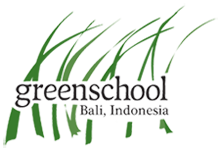|

Our Mission
To develop a lifelong foundation and to provide a supportive environment where the child ’s full potential is met.
Our Goals
-
To nurture the child’s natural love of learning
-
To open up opportunities for growth and independence
-
To bring about self-respect and positive self worth.
-
To build a profound self esteem and healthy, happy, strong self image.
CURRICULUM AREAS
-
Practical Life is built on the child's natural interests and help them develop muscular dexterity, concentration, hand-eye oordination, a lengthened attention span and respect for self, others and environment.
-
Sensorial materials help the child to refine sense of discriminations and judgement and to become aware of the surrounding world.
-
Language . The child learns to explore sounds, understand and develop vocabulary in English.
-
Math materials aim to give the child a strong foundation for forming abstract ideas about numbers and a love for the beauty of math.
-
Culture . Children are introduced to the experiences of Art, Music, Geography, Botany, Science and Technology (Computer).
|
A Montessori Method for Cycle 1, which has characteristic as below
-
A Child-Centered Environment
The focus of activity in the Montessori setting is on children's learning, not on teachers' teaching. Child will work individually or in small, self-selected groups. There will be very few whole group lessons.
-
Learning styles
All kinds of intelligences and styles of learning are nurtured: musical, bodily-kinesthetic, spatial, interpersonal, intrapersonal, intuitive, linguistic and logical-mathematical. This particular model is backed up by Harvard psychologist Howard Gardner's theory of multiple intelligences.
-
Mixed Age Groups
The younger child learns through observation of the older child. In addition, the older student has the opportunity to become a leader and reinforce their knowledge as they help their younger friends.
-
Facilitator
Originally called a “Directress”, the Montessori teacher acts as a facilitator of learning, resource person, role model, demonstrator, record-keeper and meticulous observer of each child's behavior and growth.
-
A Focus on Individual Progress and Development
Children progress at the own pace, moving on to the next step in each area of learning as they are ready. The aim is to encourage active, self- directed learning and to strike a balance of individual mastery with small group collaboration within the group community.
-
Holistic Curriculum
The holistic curriculum applied allows the child development of self-esteem, independence, self-confidence, and a sense of responsibility for self, others, and environment.
|
For primary, we blend Montessori approach with the curricular framework of the PYP (Primary Years Programme) which embraces a developmental inquiry based approach to learning, accepting children's existing levels of learning and validating their strengths, experiences languages and cultures.
Children are encouraged to develop their knowledge, skills, concepts, attitudes and competencies within an atmosphere that fosters a sense of belonging, self-confidence, a love of learning, and the development of positive personal values and qualities.
- Curriculum Areas
Language Arts, Math, Science, Health, ICT, Social Science, Art and Music
Indonesian Subjects
Bahasa, PPKN, IPS, Agama
Profile of Students
* Inquirers: natural curiosity is nurtured, actively enjoy learning
* Thinkers: exercise initiative in applying thinking skills critically and creatively to make sound decisions.
* Communicators: receive and express ideas and information confidently in languages, including math language.
* Risk-takers: approach unfamiliar situations without anxiety and have the confidence and independence of spirit to explore new roles, ideas and strategies.
* Knowledgeable: acquired a critical mass of significant knowledge.
* Principled: a sound grasp of the principles of moral reasoning. They have integrity, honesty and a sense of fairness and justice.
* Caring: show sensitivity towards the needs and feelings of others.
* Open-minded: respect the views, values and traditions of other individuals and cultures.
* Well-balanced: understand the importance of physical and mental balance and personal well-being.
* Reflective: give thoughtful consideration to their own learning and analyse their personal strengths and weaknesses in a constructive manner.
Extra Curricular Activities
- Art : Ballet, Vocal, Drawing
- Academic : I-Math
- Sports : Taekwondo, Yoga, Soccer
We also arrange field trip and sports day monthly.
Facilitators
Qualified tutors with experience in working with children of different needs.
Lead by Mrs. Lidia Sandra, who holds degree in Psychology and Master Degree in Computing Engineering Science from UNSW, Australia.
|









.gif)



